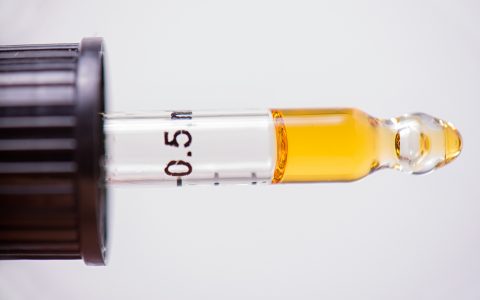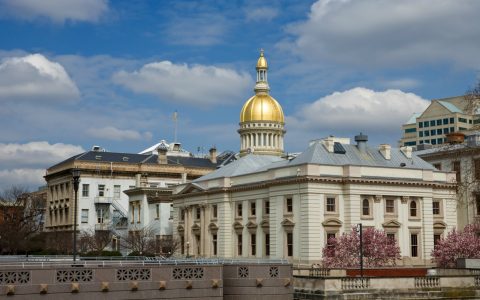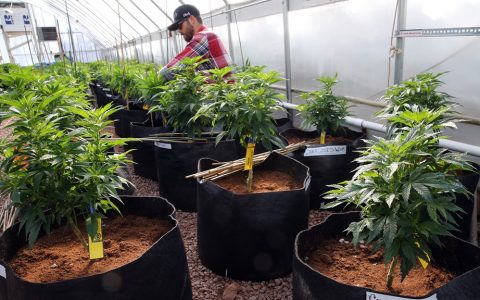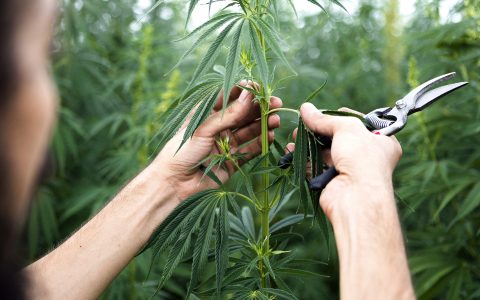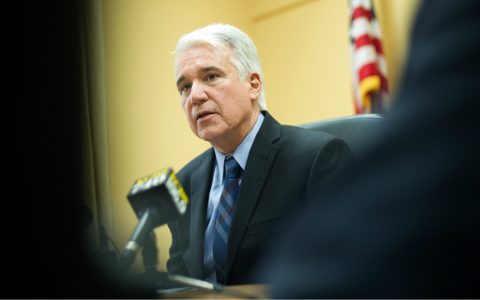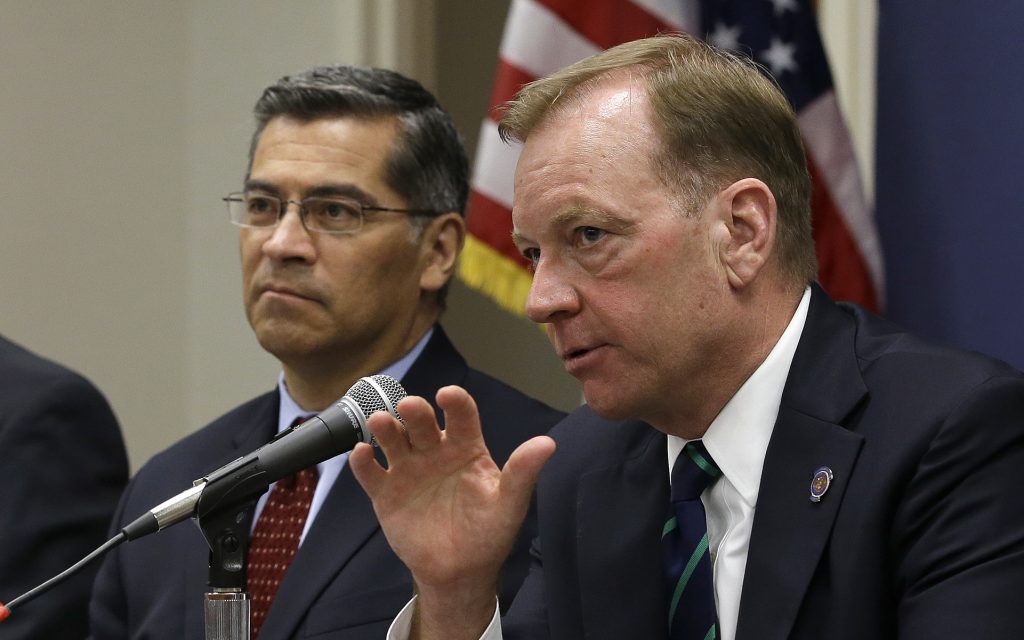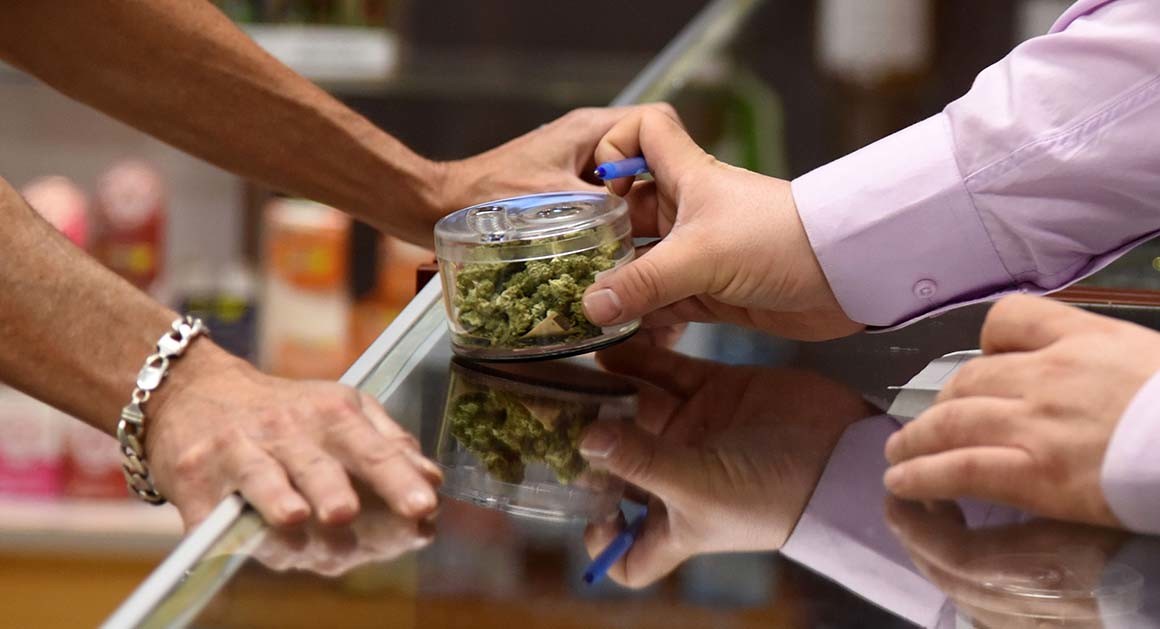Baron23
Well-Known Member
You caved, Gardner....how disappointing.
Colorado Sen. Cory Gardner ends marijuana blockade for some DOJ jobs
By The Cannabist Staff
Colorado’s Republican U.S. senator announced Thursday that he has lifted holds on certain Department of Justice nominees he had previously put in place over concerns about federal marijuana policy.
Gardner used his power as a senator last month to freeze nominations for posts at the agency after U.S. Attorney General Jeff Sessions rescinded Obama-era protections for states like Colorado that have broadly legalized recreational marijuana. It was a dramatic move by a Republican senator against his own party’s attorney general and came after Gardner said Sessions had promised him there wouldn’t be a crackdown. Gardner said he was placing holds on nominees until Sessions changed his approach.
Thursday’s announcement comes after Gardner received undefined assurances from Justice Department officials about its enforcement of federal drug laws, The Denver Post reports
Asked to specify what he got in return, Gardner told the Post: “We’ve had very good, positive conversations about protecting states’ rights and protecting the voters of Colorado’s wishes.”
Related stories
“Let me be crystal clear: so long as the federal enforcement priorities detailed in the 2013 Cole Memorandum are adequately protected, the DOJ should respect the will of the states who have spoken overwhelmingly on this issue,” Gardner said in a statement. “I will view the DOJ’s failure to do so as a direct contradiction of our positive conversations and will take action accordingly.”
In an interview with The Associated Press Thursday, Gardner stopped short of saying Rosenstein offered his assurances that the department would not crack down on the legal cannabis industry, but it gave him enough comfort that Colorado’s acting U.S. attorney, Bob Troyer, will continue to focus on prosecuting people acting outside of Colorado’s voter-approved marijuana laws rather than those who follow them.
Members of Colorado congressional delegation have said they were reassured by Troyer during a Jan. 11 conference call that his office would not step up marijuana-related prosecutions at the expense of other matters such as immigration, the opioid crisis and violent crime, The Cannabist reported.
In the call, Troyer reiterated his previous statements about marijuana prosecutions, Jeff Dorschner, spokesman for the U.S. Attorney’s Office in Colorado, told The Cannabist.
The about-face marks a major de-escalation in Gardner’s six-week battle with Sessions over federal marijuana policy and states’ rights.
Gardner took to the Senate floor shortly after Sessions’ Jan. 4 marijuana policy shift, calling the move a trampling of Colorado’s rights and announcing he would withhold support for Justice Department nominees until the policy dispute was resolved.
The senator’s fiery speech helped score him a Jan. 10 meeting with the attorney general, however no progress was made, Gardner told the Post.
“I don’t think there was anything new in the (Jan. 10) discussion about (Sessions’) position, other than he doesn’t think that he’s changed anything,” Gardner said. “But clearly what he did (Jan. 4) was, I don’t think, the same commitment that he gave us prior to (his) confirmation.”
Op-ed: What to make of Cory Gardner’s feud with Jeff Sessions
A month into his blockade, Gardner was still standing firm in his vow to jam all appointments — even as Sessions blamed the Republican senator for holding up the confirmations of key figures, including the heads of the department’s national security, criminal and civil rights divisions.
Gardner’s remaining holds on other DOJ nominees will continue as he works toward a solution that protects Coloradans’ rights, the senator said Thursday.
This week Gardner and fellow Colorado Sen. Michael Bennet led a bipartisan group of 18 senators in requesting protections for state marijuana laws be inserted into must-pass legislation funding the federal government.
“Doing so will provide the opportunity to pursue federal legislation that both protects the legitimate federal interests at stake and respects the will of the states – both those that have liberalized their marijuana laws and those that have not,” the letter said.
Colorado’s senators also teamed up on a Jan. 11 letter to the U.S. Treasury Department requesting it retain a 2014 agency decision that allows banks and credit unions to do work with the cannabis industry “so long as they conducted due diligence such as verifying that the businesses were in compliance with state law.”
Both Bennet and Gardner argued the 2014 rule has been a boon for both safety and industry oversight. The two lawmakers introduced legislation last year that would similarly protect banks that did business with marijuana companies.
Colorado Sen. Cory Gardner ends marijuana blockade for some DOJ jobs
By The Cannabist Staff
Colorado’s Republican U.S. senator announced Thursday that he has lifted holds on certain Department of Justice nominees he had previously put in place over concerns about federal marijuana policy.
Gardner used his power as a senator last month to freeze nominations for posts at the agency after U.S. Attorney General Jeff Sessions rescinded Obama-era protections for states like Colorado that have broadly legalized recreational marijuana. It was a dramatic move by a Republican senator against his own party’s attorney general and came after Gardner said Sessions had promised him there wouldn’t be a crackdown. Gardner said he was placing holds on nominees until Sessions changed his approach.
Thursday’s announcement comes after Gardner received undefined assurances from Justice Department officials about its enforcement of federal drug laws, The Denver Post reports
Asked to specify what he got in return, Gardner told the Post: “We’ve had very good, positive conversations about protecting states’ rights and protecting the voters of Colorado’s wishes.”
Related stories
- Berkeley to Jeff Sessions: We’re a sanctuary city for marijuana users
- Senators: Add protections for state marijuana laws to legislation funding federal government
- With marijuana banking legislation stalled, cannabusinesses awash with cash, vulnerable to violent crime
- Sen. Cory Gardner’s siege of Justice Department over marijuana enters second month
- One month after Sessions marijuana memo, where do U.S. attorneys stand on legal weed?
“Let me be crystal clear: so long as the federal enforcement priorities detailed in the 2013 Cole Memorandum are adequately protected, the DOJ should respect the will of the states who have spoken overwhelmingly on this issue,” Gardner said in a statement. “I will view the DOJ’s failure to do so as a direct contradiction of our positive conversations and will take action accordingly.”
In an interview with The Associated Press Thursday, Gardner stopped short of saying Rosenstein offered his assurances that the department would not crack down on the legal cannabis industry, but it gave him enough comfort that Colorado’s acting U.S. attorney, Bob Troyer, will continue to focus on prosecuting people acting outside of Colorado’s voter-approved marijuana laws rather than those who follow them.
Members of Colorado congressional delegation have said they were reassured by Troyer during a Jan. 11 conference call that his office would not step up marijuana-related prosecutions at the expense of other matters such as immigration, the opioid crisis and violent crime, The Cannabist reported.
In the call, Troyer reiterated his previous statements about marijuana prosecutions, Jeff Dorschner, spokesman for the U.S. Attorney’s Office in Colorado, told The Cannabist.
The about-face marks a major de-escalation in Gardner’s six-week battle with Sessions over federal marijuana policy and states’ rights.
Gardner took to the Senate floor shortly after Sessions’ Jan. 4 marijuana policy shift, calling the move a trampling of Colorado’s rights and announcing he would withhold support for Justice Department nominees until the policy dispute was resolved.
The senator’s fiery speech helped score him a Jan. 10 meeting with the attorney general, however no progress was made, Gardner told the Post.
“I don’t think there was anything new in the (Jan. 10) discussion about (Sessions’) position, other than he doesn’t think that he’s changed anything,” Gardner said. “But clearly what he did (Jan. 4) was, I don’t think, the same commitment that he gave us prior to (his) confirmation.”
Op-ed: What to make of Cory Gardner’s feud with Jeff Sessions
A month into his blockade, Gardner was still standing firm in his vow to jam all appointments — even as Sessions blamed the Republican senator for holding up the confirmations of key figures, including the heads of the department’s national security, criminal and civil rights divisions.
Gardner’s remaining holds on other DOJ nominees will continue as he works toward a solution that protects Coloradans’ rights, the senator said Thursday.
This week Gardner and fellow Colorado Sen. Michael Bennet led a bipartisan group of 18 senators in requesting protections for state marijuana laws be inserted into must-pass legislation funding the federal government.
“Doing so will provide the opportunity to pursue federal legislation that both protects the legitimate federal interests at stake and respects the will of the states – both those that have liberalized their marijuana laws and those that have not,” the letter said.
Colorado’s senators also teamed up on a Jan. 11 letter to the U.S. Treasury Department requesting it retain a 2014 agency decision that allows banks and credit unions to do work with the cannabis industry “so long as they conducted due diligence such as verifying that the businesses were in compliance with state law.”
Both Bennet and Gardner argued the 2014 rule has been a boon for both safety and industry oversight. The two lawmakers introduced legislation last year that would similarly protect banks that did business with marijuana companies.
